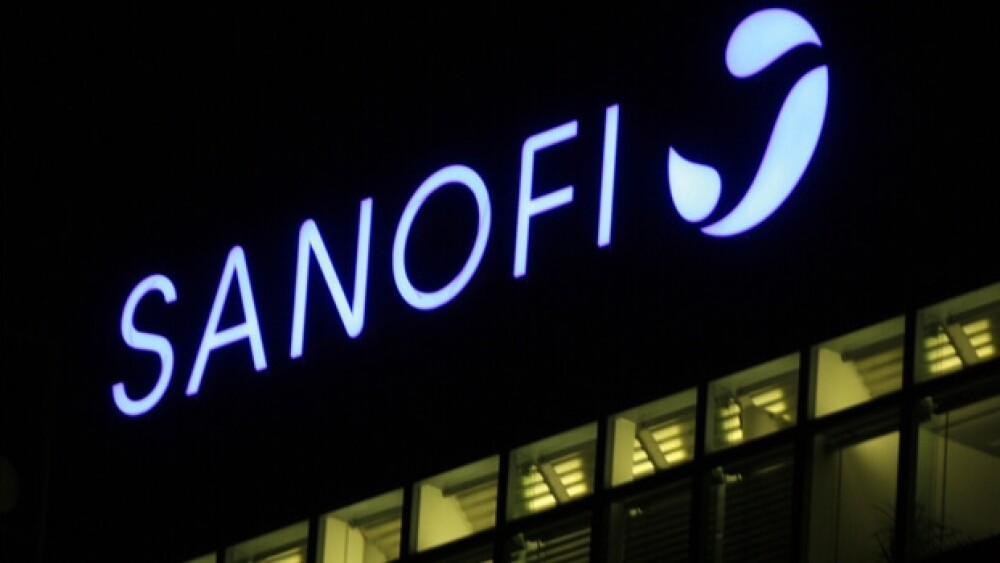Despite the bleak challenges brought on by COVID-19, Bill Sibold, executive vice president of Sanofi Genzyme, is optimistic that some of the greatest discoveries in medicine and treating various diseases are within the grasp of the pharmaceutical industry.
360b/Shutterstock
Despite the bleak challenges brought on by COVID-19, Bill Sibold, executive vice president of Sanofi Genzyme, is optimistic that some of the greatest discoveries in medicine and treating various diseases are within the grasp of the pharmaceutical industry.
One day after Sanofi held its virtual Research and Development Day, Sibold spoke to BioSpace about the company’s core pipeline focus, programs aimed at COVID-19 and what the future of the industry and patient care could look like in a post-COVID-19 world.
Pointing to the current pandemic sweeping across the globe, Sibold expressed awe at the rapid response to the global threat made by the pharmaceutical industry. Not only have older drugs been assessed as potential treatments, new medications and vaccines are in development to tackle the novel coronavirus. It’s that kind of herculean scientific effort, coupled with new understandings of human biology, that will spur new treatment options that could dramatically improve the lives of millions of patients. With the amount of good that these kinds of products could provide to the world, Sibold said the industry, which he hailed as the greatest in the world, is at an “incredible time.”
Looking at Sanofi’s pipeline, Sibold said the company is rapidly moving in a direction set by John Reed, the company’s global head of R&D, and Chief Executive Officer Paul Hudson who has a goal of allocating resources to develop potential first-in-class or best-in-class medicines.
At the R&D day, Sanofi said two-thirds of its developmental assets have the potential to be either first- or best-in-class treatments. Among the company’s top-selling drugs is Dupixent (dupilumab), an injectable biologic that has been approved for treatment of asthma and atopic dermatitis. Dupixent targets type 2 inflammation, particularly interleuikin-4 and -13, which are related cytokines present in type 2 inflammation diseases. Dupixent continues to be studied in multiple inflammatory diseases and sales are projected to top 10 €billion. Sibold said a medication like Dupixent is a once-in-a-lifetime product to work with.
Sibold also pointed to the company’s hemophilia asset, BIVV001. The medication is a potential new class of factor VIII therapeutic for hemophilia A. While the market for hemophilia has been rapidly changing, Sibold said BIVV001 could become an important treatment option for patients as it’s designed to extend protection from bleeds through high factor levels with once-weekly prophylactic dosing.
“It’s just a remarkable product,” Sibold said.
Venglustat, a drug that builds on the rare-disease heritage of Sanofi Genzyme, is currently in development for several monogenetic diseases including rare diseases such as Gaucher disease type 3, Fabry disease, and GM-2 gangliosidoses. Calling it a “pipeline in a pill,” Sibold said venglustat is also being examined in more monogenetic disorders, particularly Autosomal dominant polycystic kidney disease and GBA-Parkinson’s disease.
Sibold also touted Sanofi’s efforts to address COVID-19. The company has two vaccine candidates, a recombinant protein-based vaccine approach in collaboration with GlaxoSmithKline, as well as a messenger RNA candidate in collaboration with Translate Bio. If one or both of the vaccine candidates is successful, Sibold said Sanofi has the manufacturing capacity to provide hundreds of millions of doses. However, he noted that there are more than seven billion people in the world and it will take partnerships to scale up to meet that challenge – no matter which company is first to develop a vaccine.
Additionally, Sanofi and development partner Regeneron are exploring the efficacy of Kevzara, an IL-6 inhibitor, against COVID-19, the company explored the efficacy of hydroxychloroquine and also aimed its diagnostics capabilities at the disease.
While the industry and Sanofi have pivoted on a dime to address the global threat of COVID-19, Sibold said the pandemic has changed the landscape, perhaps forever, in patient treatment. Sibold led a panel discussion on this very topic at the annual Biotechnology Innovation Organization meeting earlier this month. Sibold said the goal of the discussion was to gain a different perspective of how the world will evolve and what that means for patient care. While not all of the questions raised in the panel can be answered until more is known about the disease and the potential vaccines and treatments that could be approved, Sibold said there are some things the industry can begin to prepare. That includes an increased reliance on telemedicine, home infusions of certain medications and more.
“There have been so many barriers put in the way of some patients that we have to come up with ways to address that,” Sibold said. “It will be imperative to pay attention to the people who have been crushed by the pandemic.”
Not only will patient care change, Sibold predicted that regulatory hurdles could change to, particularly with the expedited manner programs for vaccines have churned through the clinic. He expressed hope that other treatments for other indications could receive the same courtesies if the science backs up the research.
“This tests what your capabilities are to the fullest and it will be hard to go back to the status quo,” Sibold said. “It’s certain there will be other outbreaks in the future and the world will have to prepare itself. When there’s a clear challenge ahead, it’s easy for people to know what to do. It’s a good reminder for the companies and society what this industry is all about.”





